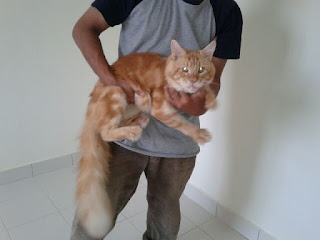
Urine Off® uses 2 environmentally friendly combination of bio-enzymatic technologies to permanently destroy urine odor and stain, leaving a clean and hygienic surface.
How Urine Off® Works
Revolutionary enzyme and microbes combination breaks down and digest away highly insoluble uric acid crystals while pheromone blockers control pets habitual trigger mechanisms for “marking” territories.Compared with other brands
| Urine Off® | Brand X (Masking with fragrances) |
Brand Y (Chemical repellant) |
Brand Z (Enzyme only or Microb only) |
|
| Vet recommended in US |  |
 |
 |
 |
| Breakdown & Digest all major components of urine; uric acid, urea & urochrome c |  |
 |
 |
?
|
| Contains pheromone blockers eiminating “marking” by your pets |  |
 |
 |
 |
| Remove old urine stains |  |
 |
 |
 |
| Safe on human and pets |  |
 |
 |
 |
| Safe on all surfaces, including sofa, carpet, wood floors, tile, grout, upholstery |  |
 |
 |
? |
| Carpet & Rug Institute “ Seal of Approval” |  |
 |
 |
 |
| NO alchohol, peroxide, chlorox, or dangerous bleaching agents! |  |
 |
 |
? |
General Instructions
- Shake well before using
- Absorb fresh urine with paper towel.
- Application: It is essential to saturate the soiled area just past the edge of the stain.
- Allow Urine Off to work: Fresh deposits - few minutes. Old stains – cover area with plastic and allow it to remain overnight. Remove plastic and air dry. Reapply Urine off if necessary. Old stains/deposits may require multiple treatments.
- Remove residues with water.
- Different surfaces may require different techniques (please checkout http://www.urineoff.com/Instructions.php for more detail cleaning instructions).
General Rules
- Soak it, and allow to air-dry
- Repeat as necessary
- The more absorbent the material, the more Urine Off will be required.
- NEVER spray on pets or people. Urine Off is mild and safe to use around pets and people but is not designed for topical use!
- ALWAYS check fabrics for colorfastness in an inconspicuous area. Again, Urine Off is mild and safe to use on water-safe surfaces, but play it safe and test first!
- Do NOT use directly on pet litter - this is ineffective. If the litter has a urine odor, change it. Urine Off is great for the litter pan itself, however (details below).
- NEVER use other cleaners or chemicals of any kind at the same time as Urine Off - this will reduce its effectiveness. Use Urine Off first! If other chemicals have already been applied, be sure to rinse repeatedly to remove all traces and allow to dry completely before using Urine Off!










